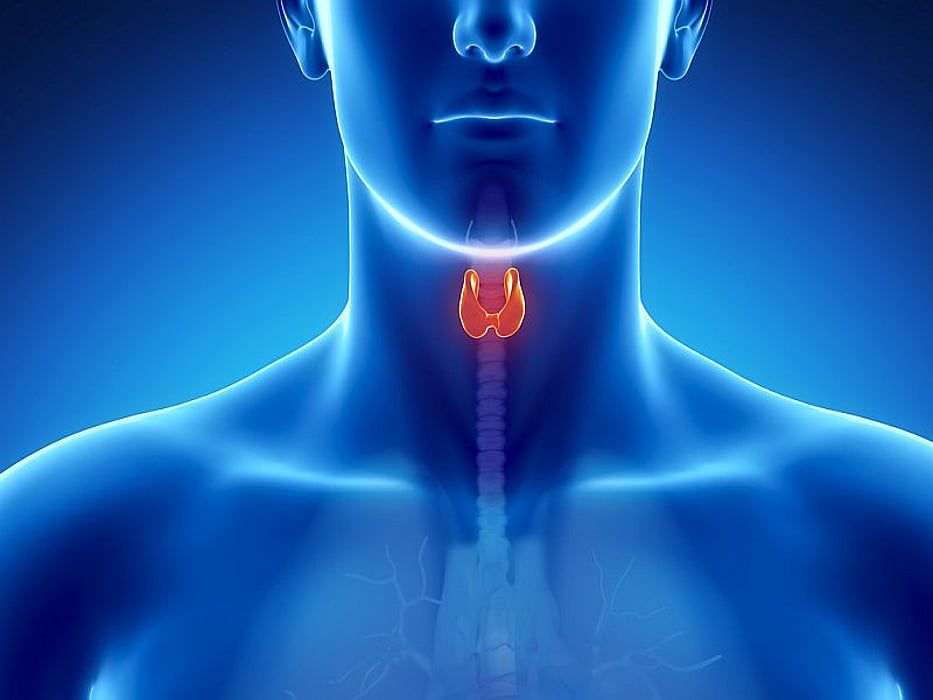Thyroidectomy Without I-131 Noninferior in Low-Risk Thyroid Cancer

THURSDAY, March 10, 2022 (HealthDay News) -- For patients with low-risk thyroid cancer undergoing thyroidectomy, follow-up without use of radioiodine is noninferior to ablation with radioiodine, according to a study published in the March 10 issue of the New England Journal of Medicine.
Sophie Leboulleux, M.D., Ph.D., from the Gustave Roussy and Université Paris-Saclay in Villejuif, France, and colleagues conducted a prospective, phase 3 trial involving patients with low-risk differentiated thyroid cancer who were undergoing thyroidectomy. A total of 730 participants were randomly assigned to receive ablation with postoperative administration of radioiodine (1.1 GBq) after injections of recombinant human thyrotropin (radioiodine group) or to receive no postoperative radioiodine (no-radioiodine group); participants were evaluated three years after randomization.
The researchers found that the percentages of patients without a composite end point event (functional, structural, or biologic abnormalities) at three years were 95.6 and 95.9 percent in the no-radioiodine and radioiodine groups, respectively (difference, −0.3 percentage points), which met the noninferiority criteria. In eight patients, events consisted of structural or functional abnormalities, while 23 patients with 25 events had biologic abnormalities. Patients with a postoperative serum thyroglobulin level of more than 1 ng/mL during thyroid hormone treatment had more frequent events. Patients with or without an event had similar molecular alterations. There were no reports of treatment-related adverse events.
"Follow-up without the use of radioiodine after thyroidectomy was noninferior to the administration of 1.1 GBq of radioiodine after the administration of recombinant human thyrotropin," the authors write.
Abstract/Full Text (subscription or payment may be required)
Editorial (subscription or payment may be required)
Related Posts
Burn Injuries Can Occur From E-Cigarette Smoking While on Supplemental Oxygen
WEDNESDAY, May 17, 2023 (HealthDay News) -- Although uncommon, smoking...
USPSTF: Evidence Inadequate for Recommending OSA Screening
TUESDAY, Nov. 15, 2022 (HealthDay News) -- The U.S. Preventive Services Task...
Ultraprocessed Food Consumption Linked to Dementia Risk
THURSDAY, July 28, 2022 (HealthDay News) -- Increased consumption of...
California es el primer estado en aprobar la prohibición de 4 aditivos alimentarios peligrosos
JUEVES, 14 de septiembre de 2023 (HealthDay News) -- California está en camino...
